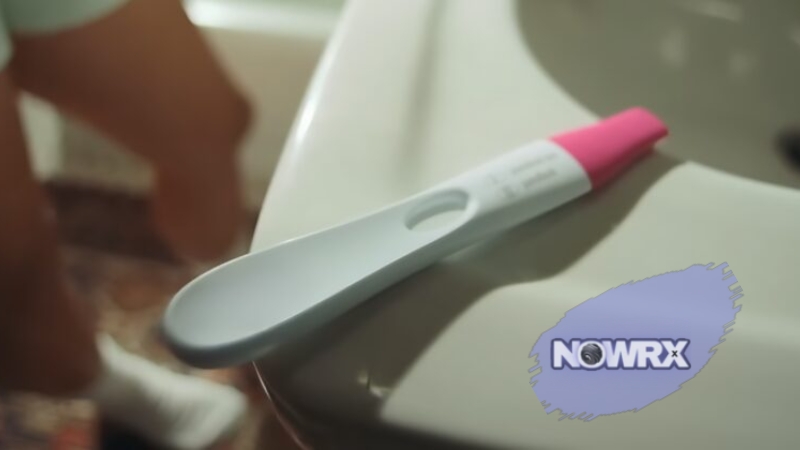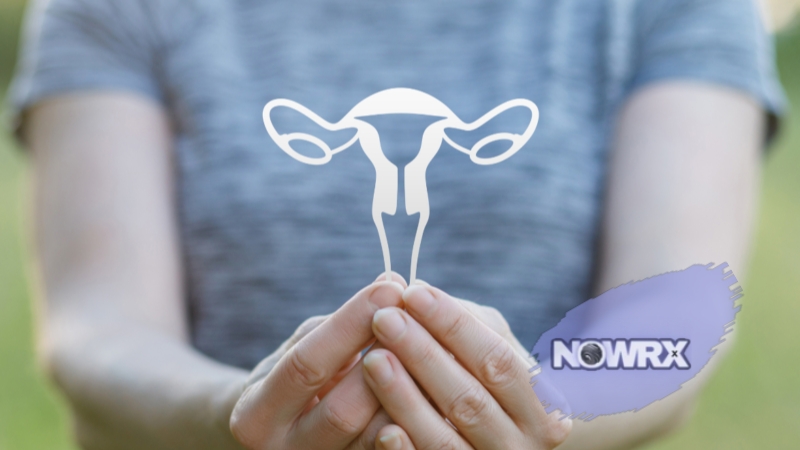Pregnancy is a unique adventure, packed with signs that can hint at the arrival of a new member of your family.
If you’re playing the guessing game of “Am I pregnant?”, there are a few indicators to watch for before you even reach for a pregnancy test. In this article, we’ll take a closer look at these indicators.
Key takeaways
- A missed period is often the earliest signal of pregnancy.
- Morning sickness, which can happen at any time of day, affects 70-80% of pregnant individuals.
- Increased urination and fatigue are common early pregnancy symptoms, driven by hormonal changes and the body’s adjustments to support the pregnancy.
- Changes in breast size and sensitivity, along with unusual food cravings or aversions, are telltale early signs.
- For accurate early pregnancy confirmation, wait a week after a missed period to take a home pregnancy test, or consult a healthcare provider.
1. Missed period

Often the first whisper of pregnancy is a missed period. It’s the classic signal that makes many sit up and ponder, “Could I be?”
Still, it’s essential to remember that periods can also be missed due to stress, significant weight changes, or hormonal imbalances. The absence of menstruation, especially if your cycle usually runs like clockwork, warrants attention. It is known as the earliest sign.
Why does this happen?
Because the body begins to produce hormones, like progesterone and estrogen, to support the developing fetus. These hormones prevent the ovary from releasing more eggs and maintain the uterine lining, eliminating the need for a menstrual period, which is the shedding of this lining. This hormonal shift ensures a suitable environment for the embryo to grow.
Jordan Davidson says: Although missing your period is one of the earliest signs of pregnancy, some pregnant people experience light bleeding during the first weeks of pregnancy, which can be mistaken for a light period.
What to do?
If your period does not arrive as expected, consider waiting a week before using a home pregnancy test for more accurate results. These tests look for hCG, a “hello, baby!” hormone. For best results, test in the morning when hCG levels are highest.
Did you know? hCG levels can be detected in blood around 11 days after conception and in urine shortly after. The hormone plays a crucial role in thickening the uterine lining and maintaining the pregnancy
2. Nausea without vomiting

Morning sickness doesn’t clock in only in the AM; it can strike at any hour. While it varies from one person to another, about 70-80% of pregnant women get hit with this queasy feeling.
When it comes to the morning sickness, Dr Joanna Pike says: this is a classic pregnancy symptom you may experience between the 2nd to the 8th week of pregnancy. This usually passes by the 16th week.
Why does this happen?
Hormonal changes in the body are the primary cause of nausea during early pregnancy, especially the hormone hCG that we mentioned earlier. These changes can affect the stomach and the sense of smell, making some individuals feel ill.
What to do?
For those experiencing nausea, small and frequent meals can help stabilize the stomach. Foods like ginger or peppermint tea might offer relief. It’s also beneficial to stay hydrated and avoid foods that seem to trigger discomfort.
P.S. If you are using Birth control pills while being pregnant, you must be aware of potential side-effects.
3. Increased urination

Suddenly mapping out all the restrooms? You might be in the early stages of pregnancy.
Why does this happen?
Urinary frequency starts as early as the first couple of weeks following conception. During pregnancy, the amount of blood in a person’s body increases, leading to more fluid processed by the kidneys and ending up in the bladder. Also, most individuals may experience urgency between weeks 10 to 13, coinciding with the uterus pushing on the bladder due to the growth of the embryo.
What to do?
Reducing caffeine intake can help, as caffeine is a diuretic, but keep up with your water intake. Try to limit fluids before bed to avoid nighttime trips.
4. Fatigue

Feeling unusually tired is common in early pregnancy. The body works overtime to support the pregnancy, leading to exhaustion.
Colleen de Bellefonds gave us an appropriate comparison: Imagine climbing a mountain without training while carrying a backpack that weighs a little more every day. That’s pregnancy in a nutshell!
Why does this happen?
The increase in progesterone, a hormone essential for maintaining pregnancy, is a primary reason for this fatigue. Also, the body’s increased need for nutrients and the effort to provide blood to the growing fetus contribute to feelings of tiredness.
What to do?
Prioritizing sleep and rest becomes essential. Eating a balanced diet rich in iron and protein can also help improve energy levels. Light exercise, such as walking, can boost overall energy.
5. Swollen, tender breasts
Changes in breast size and sensitivity are common early on. Hormones prepare the body for breastfeeding, causing these alterations.
Why does this happen?
Hormonal fluctuations responsible for preparing the body for milk production can make breasts feel fuller, more sensitive, or painful.
What to do?
Wearing supportive bras designed for pregnancy can alleviate discomfort. Choose cotton bras without underwire that will provide additional comfort and support. There are also some other solutions to deal with sore breasts during pregnancy.
Also, According to Joseph Saling: Other things could cause breast changes. But if the changes are an early symptom of pregnancy, keep in mind that it will take several weeks to get used to the new hormone levels. But when you do, breast pain should ease up.
6. Food aversions or cravings

Sudden strong dislikes or desires for specific foods are symptoms many report. These cravings or aversions can appear early and might last throughout the pregnancy.
Why does this happen?
Hormonal changes affect the sense of smell and taste, leading to new food preferences or aversions. Nutritional needs or deficiencies might also play a role in these cravings.
What to do?
Balancing nutrition while accommodating cravings is key. Finding healthy alternatives that satisfy specific tastes without compromising nutritional intake is advisable. If aversions include important food groups, seeking alternatives to ensure a balanced diet is essential.
FAQs
What are false pregnancy symptoms?
False pregnancy symptoms are signs that mimic pregnancy, such as a missed period, nausea, breast tenderness, and abdominal enlargement, but are not caused by an actual pregnancy. False pregnancy can be due to psychological factors, hormonal imbalances, or medical conditions.
How can I tell if I’m pregnant after 1 week?
You can’t tell if you’re pregnant after 1 week, because pregnancy symptoms don’t usually appear until 2 to 3 weeks after conception. The only way to confirm a pregnancy at this stage is to take a blood test that measures the level of hCG, a hormone produced by the placenta.
Does the salt pregnancy test work?
No. There is no scientific evidence or logical reason that salt can react with hCG, the pregnancy hormone, and change its appearance or texture. The salt pregnancy test is not accurate or reliable, and should not be used as a substitute for a proper home pregnancy test or a doctor’s visit.
How long can pregnancy hide itself?
Pregnancy can hide itself for different lengths of time, depending on the person’s body type, clothing, and pregnancy symptoms. Some people may not show any signs of pregnancy until the second or third trimester, while others may notice changes in their bodies as early as the first few weeks. The best way to detect a pregnancy is to take a home pregnancy test after a missed period or see a doctor for confirmation.
Conclusion
Every pregnancy is as unique as the individual experiencing it. Keeping an eye on these early signs can help you seek the care you need, ensuring a healthier journey for you and your baby. Remember, when in doubt, reaching out to a healthcare provider is your best move.
Pregnancy is a special time, and getting adequate support, informed choices, and proper care can make this early stage a more manageable and positive experience.
Drake Holloway, 45, is a pharmacist and freelance blog writer for NowRx.com. He uses his professional background to provide information and opinions on diverse subjects to those seeking guidance.
Related Posts:
- Top 7 Causes Of Urinary Tract Infection UTI - What…
- Side Effects of Taking Birth Control Pill While Pregnant
- What Does SAM Stand for In First Aid - An In-depth Guide!
- How To Get Tretinoin Prescription? The Ultimate…
- 10 Earliest Signs Of Pregnancy You Need to Be Aware of
- Early Symptoms of Uterine Fibroids - Be Aware of…








